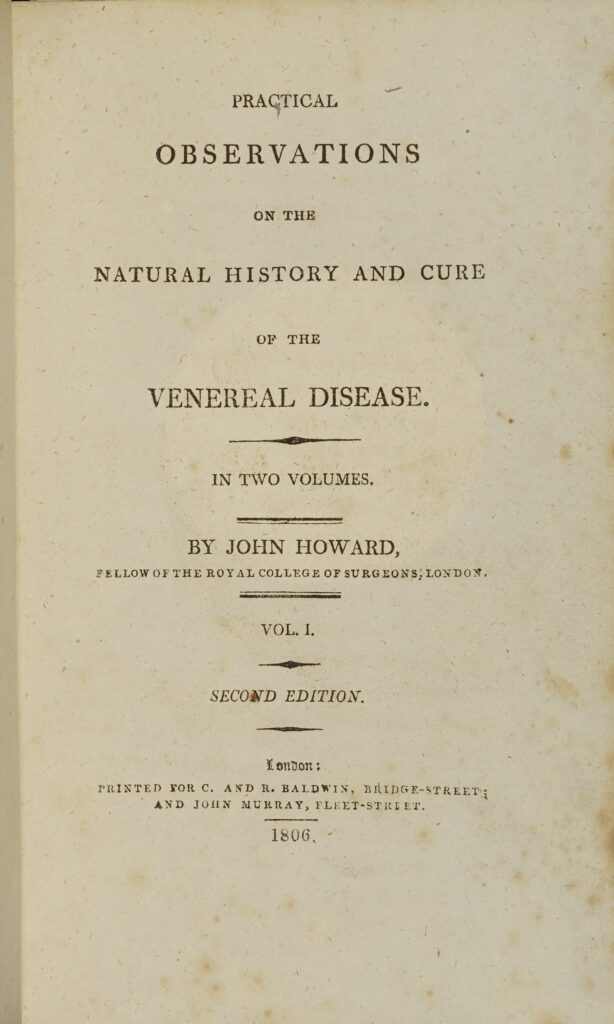


The first major health crisis of the 20th century was the Spanish Flu pandemic of 1918–20. Magdalen’s archives contain little record of the impact of this pandemic on college life, since most fellows and students had been enlisted to serve in World War I.
The 20th century also witnessed the spread of venereal diseases, which were studied in new ways in this period. Many continued to see such illnesses as ‘immoral’, but venereal diseases gradually became less taboo as attitudes changed.
In 1974, the University’s Medical Society recognised an ‘epidemic’ of sexually transmitted diseases in Oxford. In response, it began to distribute a booklet, known as The Little Blue Book, aimed at improving students’ understanding of sexual health. This gave advice about getting tested and treated, noting that ‘contact tracing’ was the ‘strongest weapon’ against the spread of STDs.
In the 1980s, the emergence of HIV/AIDS brought new challenges. The Oxford University Student Union began a campaign to raise awareness and prevent discrimination, with students at Magdalen organising the creation of an HIV/AIDS representative on the JCR Committee.
From early 2020, Magdalen, like the rest of the world, was faced with the Covid-19 pandemic. The global response drew on centuries of human experience of managing epidemic disease. As the college’s activities moved online, Magdalen once again proved itself to be a community of great resilience. Two of our fellows, Professor Adrian Hill KBE and Dr Maheshi Ramasamy, played critical roles in the development of the Oxford/Astra-Zeneca Covid-19 vaccine.


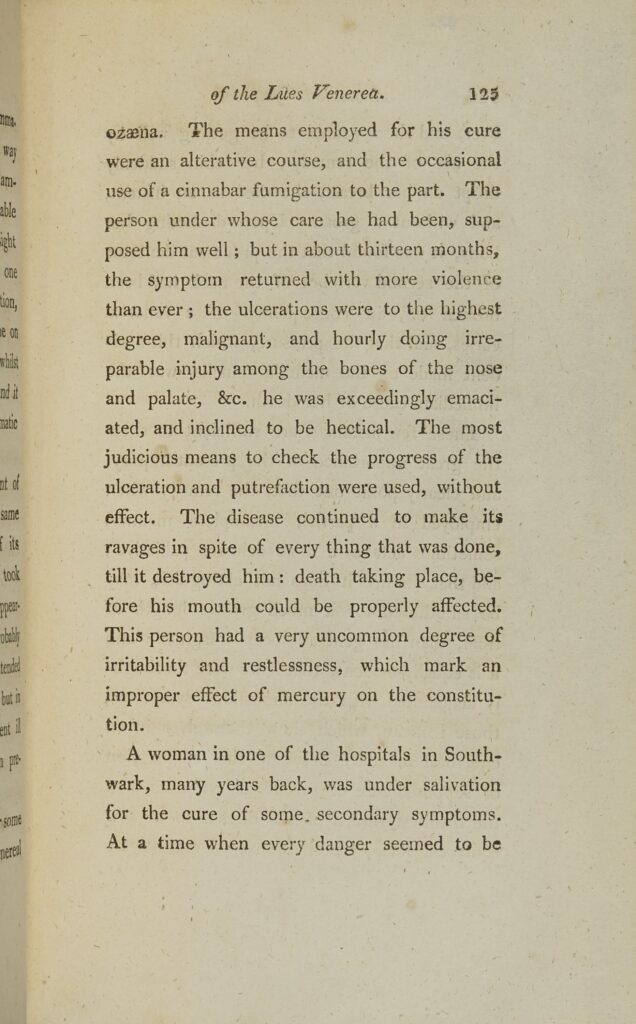
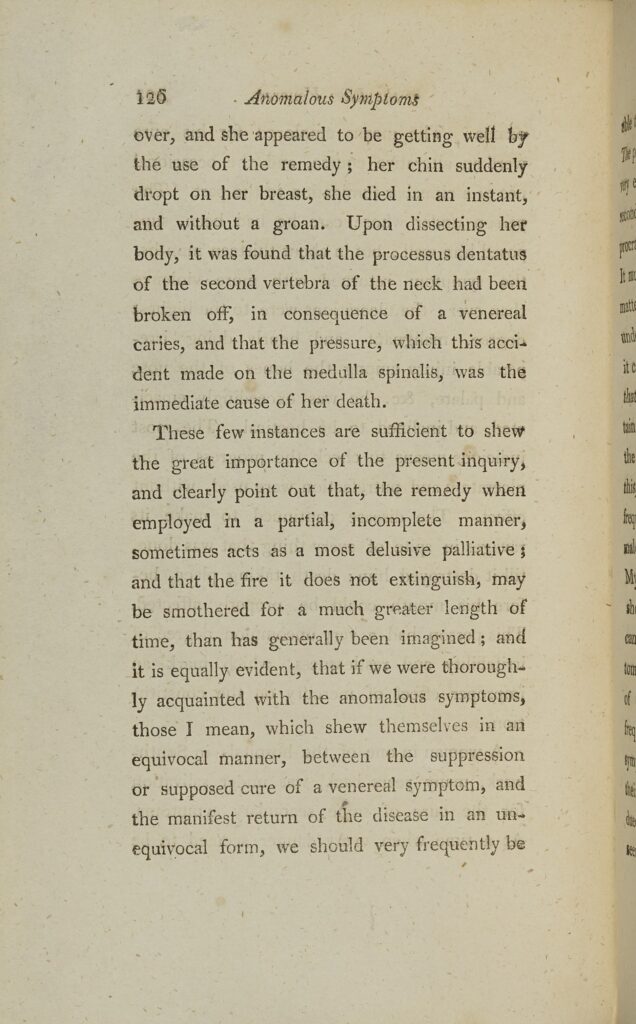
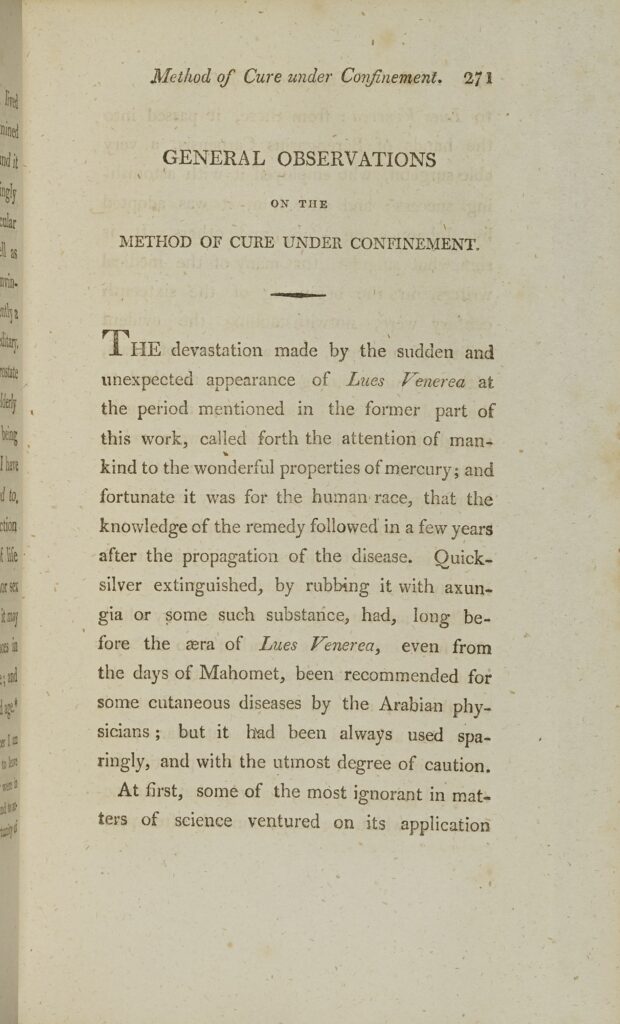
Venereal Disease
John Howard Cook (1872–1946) was a British missionary, physician, and Fellow of the Royal College of Surgeons. He worked extensively in Uganda throughout his career, engaging in medical missionary service.
This text outlines the natural history of venereal disease, particularly gonorrhoea, and provides an overview of possible cures. Howard advocated the use of mercury.
Howard’s religious and moralistic approach to epidemics is evident in his description of venereal diseases as ‘diseases of immorality’.
Magdalen College Library, Daubeny 91.GG.25
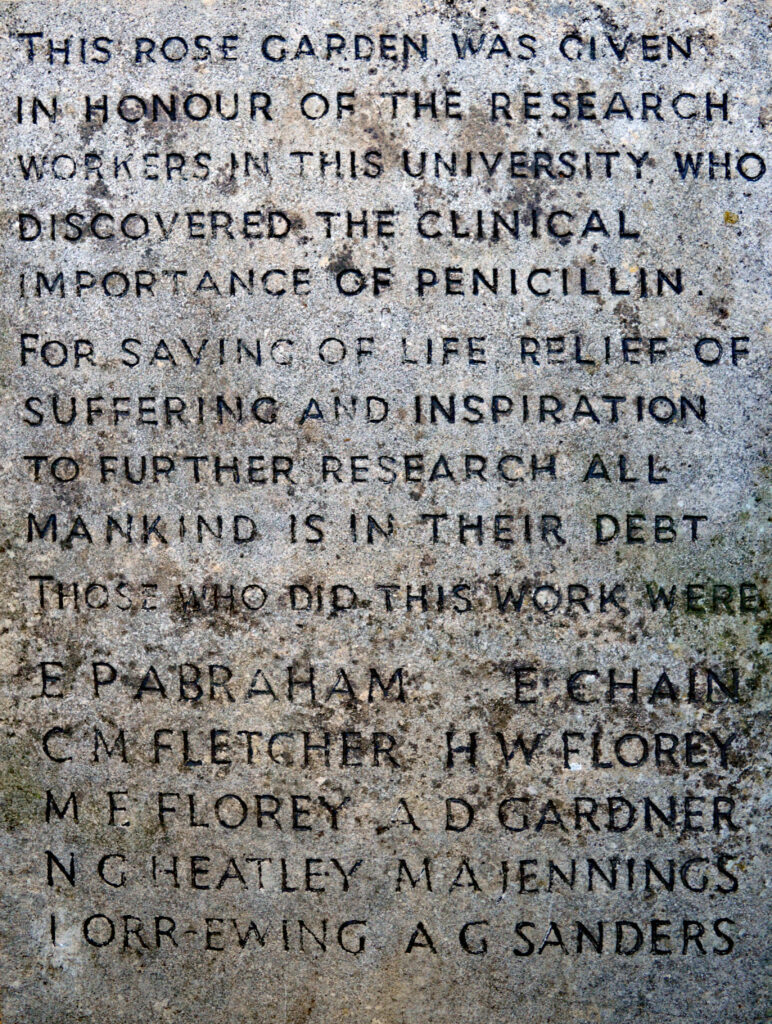

Howard Florey (1898–1968)
Howard Florey was a Rhodes Scholar at Magdalen from 1922 and Professor of Pathology at Oxford from 1935.
With several colleagues, including his wife Mary Ethel Florey (1890–1966), Florey ran the first human trials on penicillin in 1941 at the Radcliffe Infirmary. Alexander Fleming had observed the antibacterial properties of the Penicillium mould in 1928, but it was Florey and his team who developed it into an effective treatment.
In 1945, Florey and Fleming shared the Noble Prize in Physiology or Medicine. This stone memorial sits in Magdalen’s Rose Garden. It acknowledges that ‘all mankind is in their debt’.
Photo © Martin Cornish
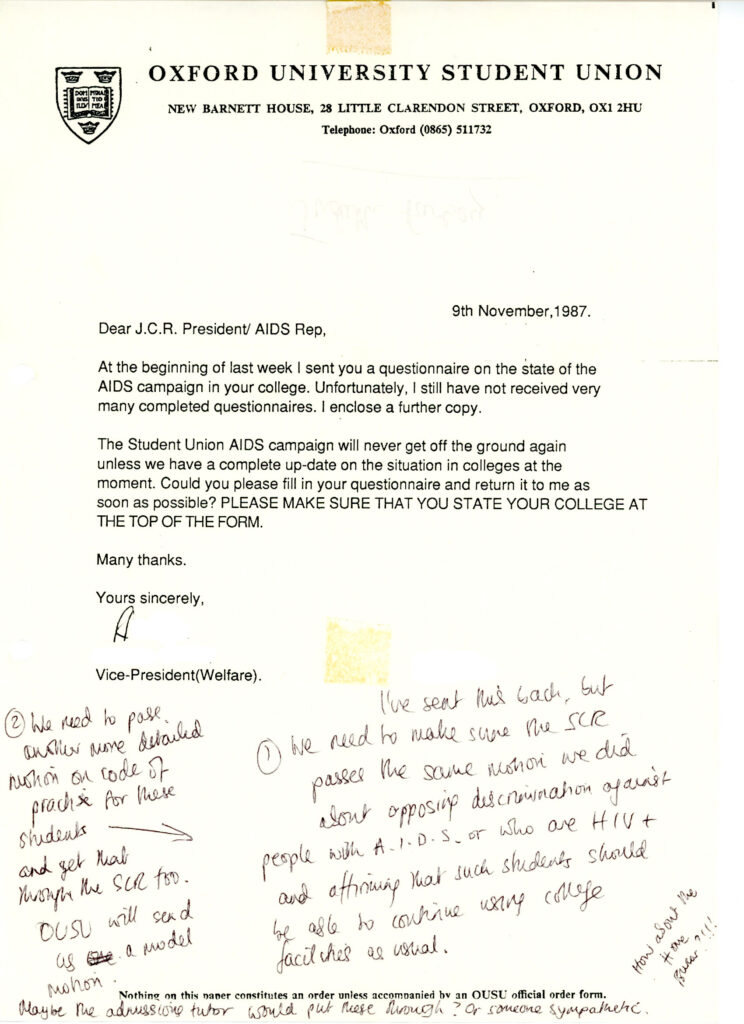

Responding to HIV/AIDS
The formal recognition of AIDS by the U.S. Centers for Disease Control and Prevention in 1981 was followed both by the continued spread of the disease and changing attitudes towards it.
In 1987, the Oxford University Student Union (OUSU) launched an AIDS awareness campaign, which sought to encourage the drafting of formal policies that would provide support to those infected and tackle discrimination. In this letter, the then OUSU Vice-President writes to colleges about this campaign. Handwritten notes at the bottom capture how Magdalen’s JCR Committee hoped to respond.
Magdalen College Archives, O2/1/C2/42


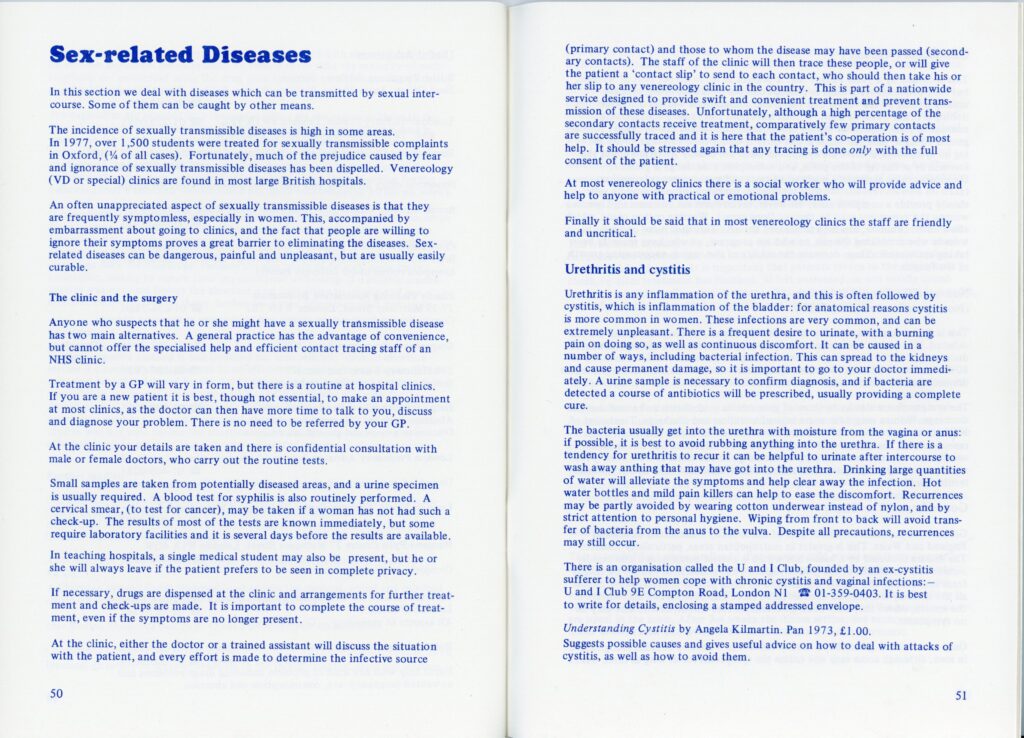
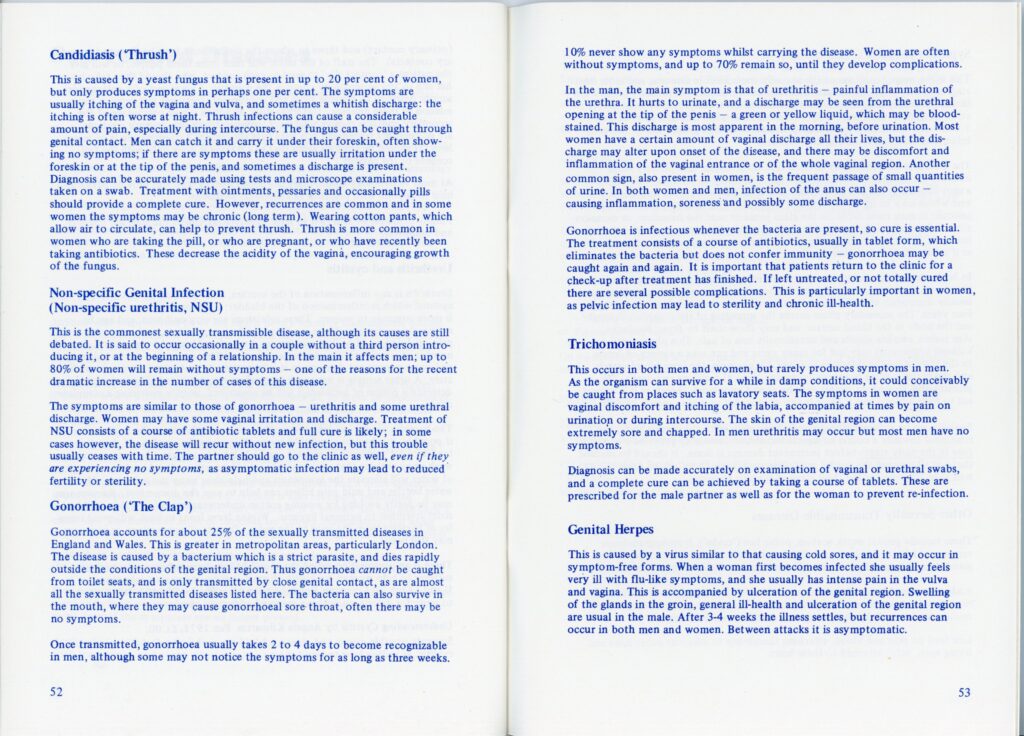
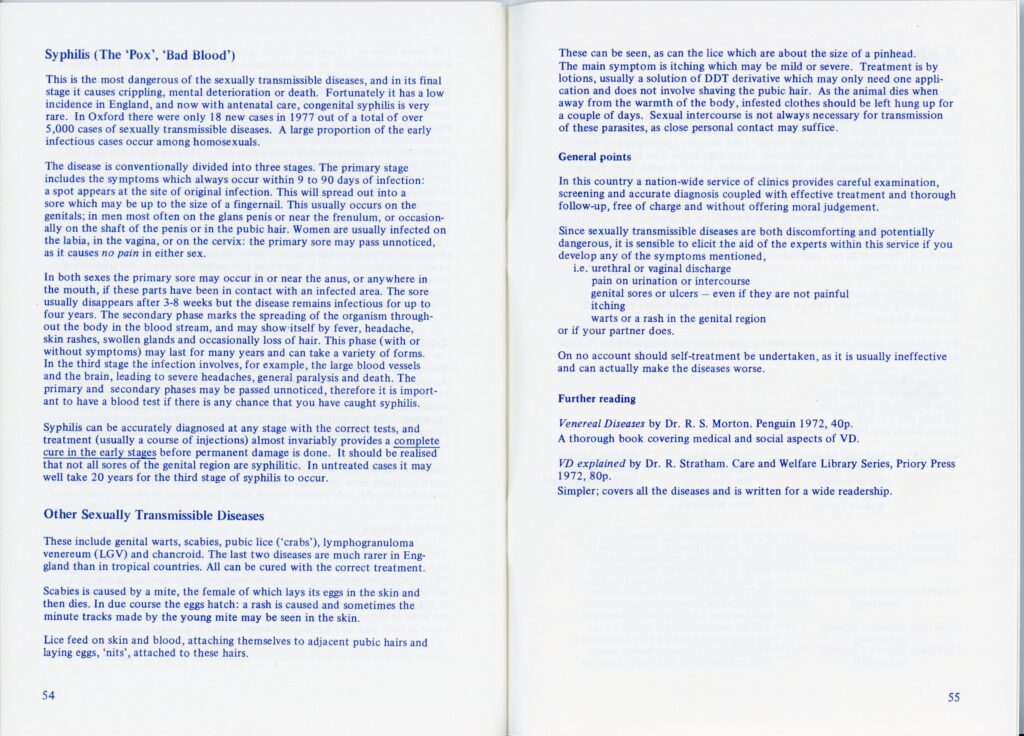
Increasing Awareness of STDs
This booklet, known as The Little Blue Book, was distributed to each new student at Oxford in the 1970s. It contained advice about sexual behaviour and various sexually transmitted diseases, which were then considered to be epidemic.
Magdalen College Archives, Acc2022/90
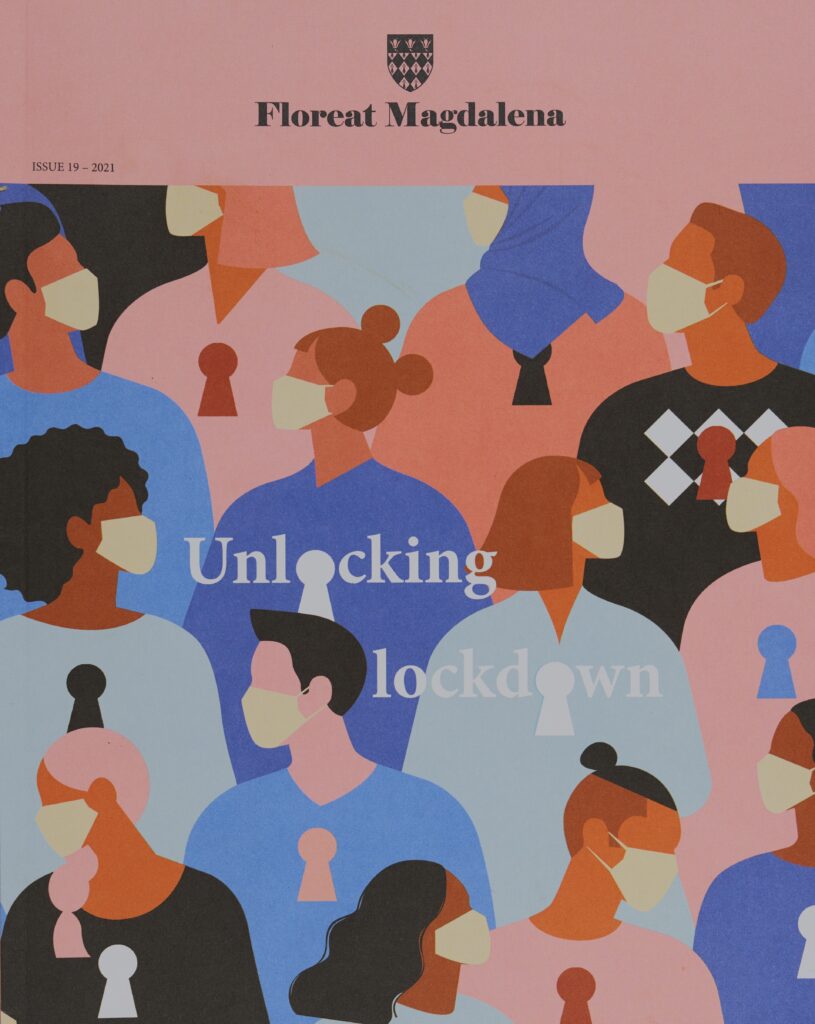

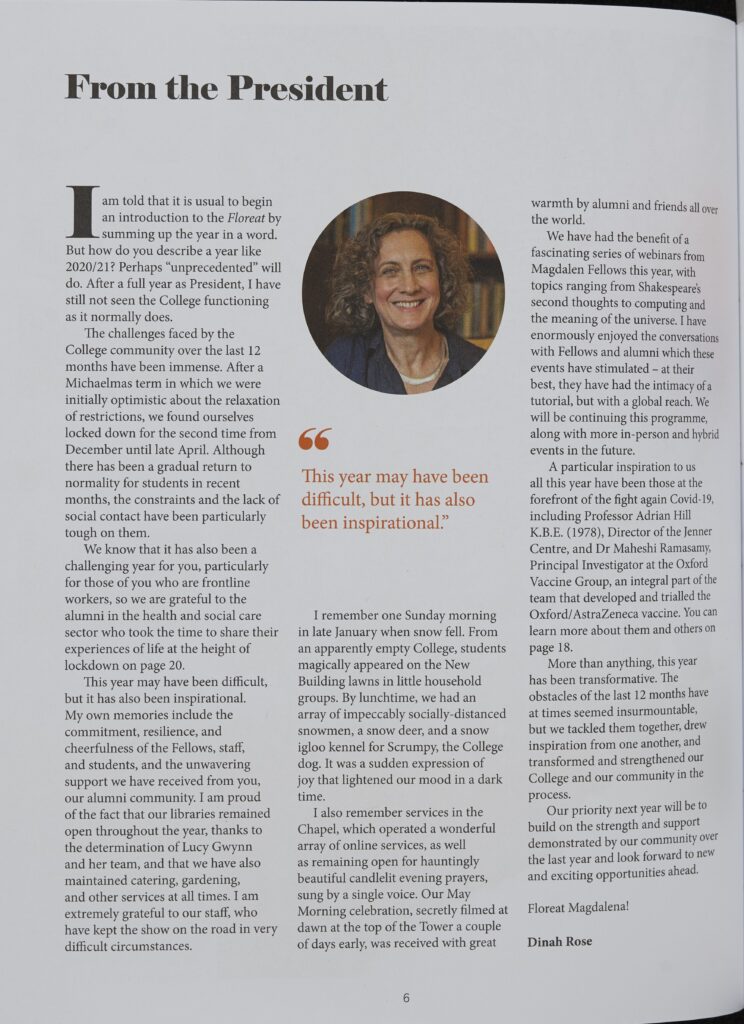
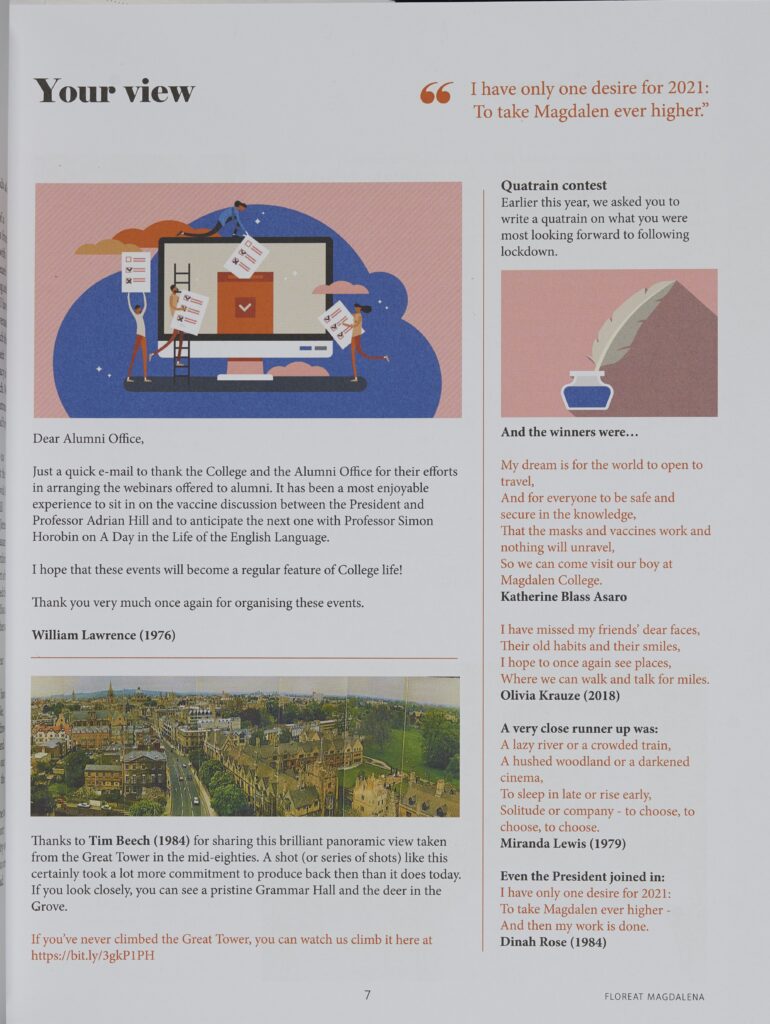
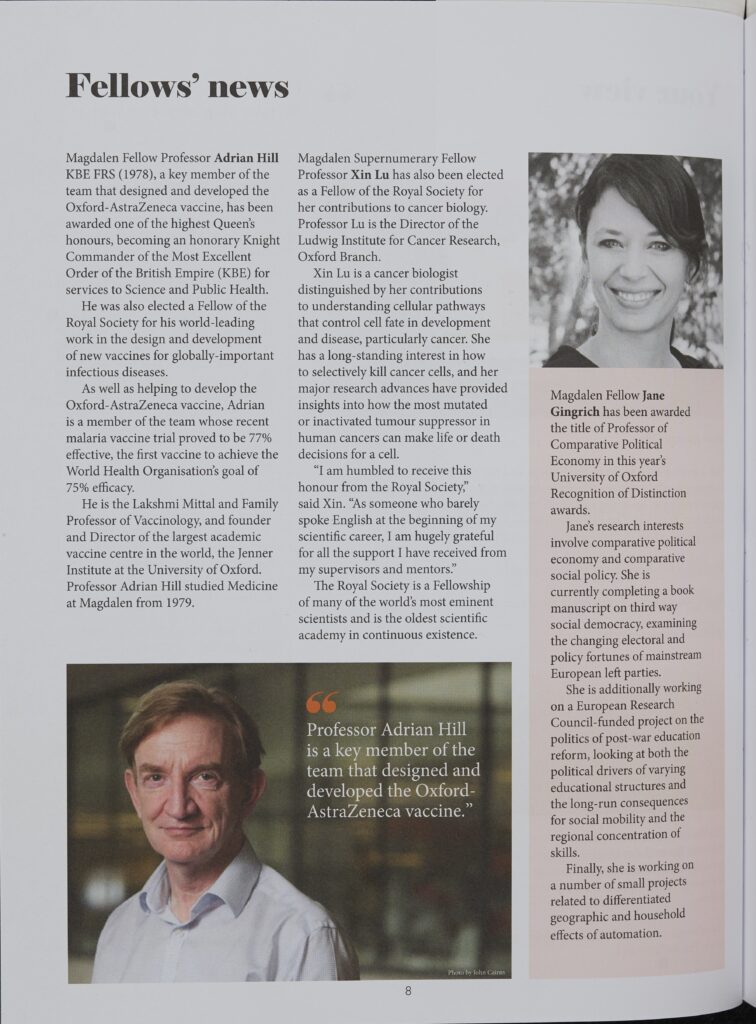

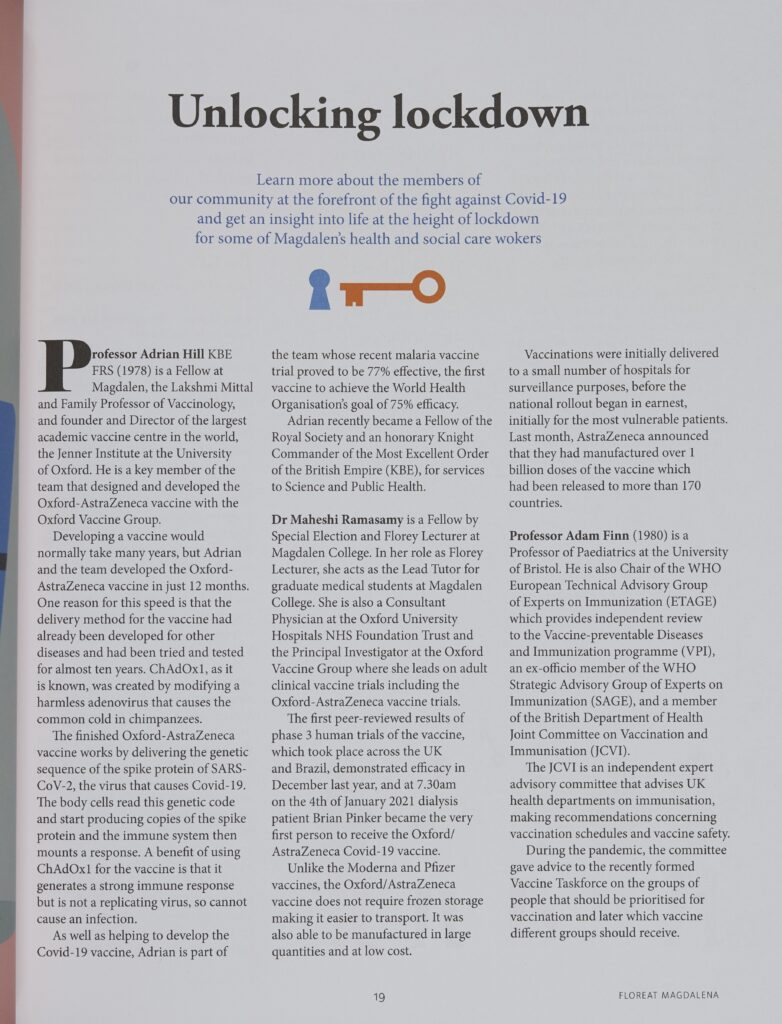
Floreat Magdalena
The 2021 issue of Floreat Magdalena, the college magazine, was entitled ‘Unlocking Lockdown’.
In her opening letter, the President, Dinah Rose KC, reflected on the unusual circumstances faced by the college during the pandemic, and the efforts of staff to maintain library, catering, gardening, chapel, and other services.
Here you can read about some major contributions members of the Magdalen community have made in the fight against Covid-19.


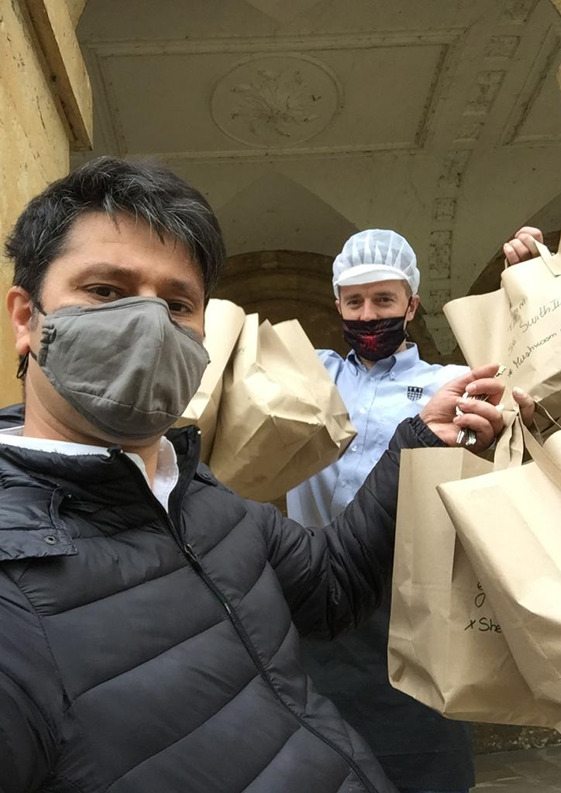
Magdalen in Lockdown
Throughout the Covid-19 pandemic, Magdalen catering staff delivered breakfasts, lunches, and dinners to students and academic staff who were quarantining in their college rooms.
In the first image above, chef Sherwin is shown observing social distancing in the kitchen. In the second image, Salar and Mirek are on their way to deliver packed meals to students in quarantine in the New Building.
Magdalen College Archives, Acc2022/92
Lockdown Improvisations
The Seven Stages of Night are a series of improvisations on the viola, performed by Magdalen student, Hugo Max (2020), during England’s second Covid-19 lockdown. Having regularly played the instrument, but without ever receiving any formal tuition, Hugo approached the process of improvisation with a mixture of freedom and curiosity, in an attempt to recapture the tradition of storytelling and precarious excitement of performing to an audience.
Recorded in an hour during his first term at Oxford, The Seven Stages drew inspiration from Hugo’s experiences of insomnia during isolation, largely spent in the Waynflete Building. The opportunity to explore the architecture of Magdalen’s chapel, in which the recording was made, also helped contribute to the narrative journey of this collection of improvisations.
© Hugo Max, November 2020


Dr Maheshi Ramasamy
Maheshi Ramasamy is Florey Lecturer and Fellow by Special Election at Magdalen. As a clinician scientist based at the Oxford Vaccine Group, Ramasamy’s research interest is in adaptive immune responses to vaccines. She leads on early and late phase clinical trials in healthy adults with a particular focus on enteric infections.
Since 2020, Ramasamy has been Principal Investigator for the Oxford-AstraZeneca COVID-19 vaccine trials, which have led to the deployment of over 2 billion doses of this vaccine globally.
Photo © John Cairns


Professor Adrian Hill
Adrian Hill KBE FRS is Professorial Fellow at Magdalen and founding Director of the Jenner Institute at Oxford. The Institute focuses on designing and developing vaccines for infectious diseases prevalent in developing countries, such as HIV/AIDS, malaria and tuberculosis.
In 2020, Hill was a key member of the team that designed and developed the Oxford-AstraZeneca vaccine, the most widely distributed vaccine against COVID-19. This contribution was recognised by the award of an honorary KBE in the 2021 Queen’s Birthday Honour list.
Photo © John Cairns